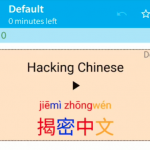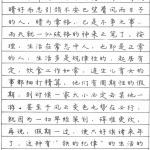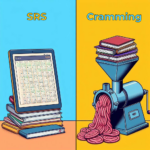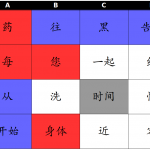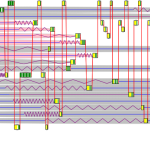Articles in the ‘Vocabulary’ category Page 8
-
Why using a good dictionary can be bad for your Chinese reading ability
The advent of smart phones and digital dictionaries has brought great benefits to Chinese learners, who no longer need to waste much time flipping through pages, looking for the right entry. However, always having quick access to the right answer can actually stop you from learning some of the strategies you need to become a successful reader in Chinese.
Read → -
Free and easy audio flashcards for Chinese dictation practice with Anki
Audio flashcards can be great for improving basic listening ability or preparing for 听写/聽寫 or dictation. It used to be time-consuming and difficult to do, but with Anki and good text-to-speech engines, it’s now both easy and free!
Read → -
Reading is a lot like spaced repetition, only better
Learning vocabulary through reading and by using spaced repetition software are both common strategies employed by students learning Chinese, but which one is the most efficient? In this guest article, Kevin Bullaughey from WordSwing compares the two methods in terms of exposure and coverage.
Read → -
How to improve your Chinese handwriting
Learning to write Chinese by hand is a complex task. This article gives an overview of what it means to write by hand, answering questions like: “Do I need to learn to write by hand?”, “What skills does handwriting in Chinese require?” and” How do I improve my handwriting?”
Read → -
Cramming vs. spaced repetition: When to use which method to learn Chinese
Cramming and spaced repetition are viable but opposite methods of reviewing Chinese characters, words and expressions. When should you use which? And Why?
Read → -
Should you focus on learning Chinese words or phrases?
When learning Chinese, should you focus mainly on learning words or phrases? This question is not easy to answer and depends on a number of factors. This article breaks it down and discusses the pros and cons of each.
Read → -
Is it necessary to learn the stroke order of Chinese characters?
Stroke order can feel difficult and pointless for beginners, but if you want to be able to write Chinese characters, it’s important to get it right from the start. Instead of taking my word for it, let me explain why stroke order matters!
Read → -
Playing Codenames to learn Chinese and other languages
Codenames is one of my favourite games, and it also happens to be an excellent game for language learning! In this article, I suggest ways of playing it in Chines, along with a tool that generates grids of code words for direct use in the classroom or elsewhere!
Read → -
Spaced repetition is not limited to flashcards
Spaced repetition is important for learning anything, but especially vocabulary in a foreign language like Chinese. However, there’s much more to spaced repetition than vocabulary flashcard apps! Even if you dislike such apps, make sure you incorporate spaced repetition in some other way.
Read → -
Expanding your Chinese with 一步一个脚印
一步一个脚印 is a blog about translating and interpreting Chinese, providing high quality posts about vocabulary and expressions in Chinese and English, as well as interpretation and translation exercises.
Read →

